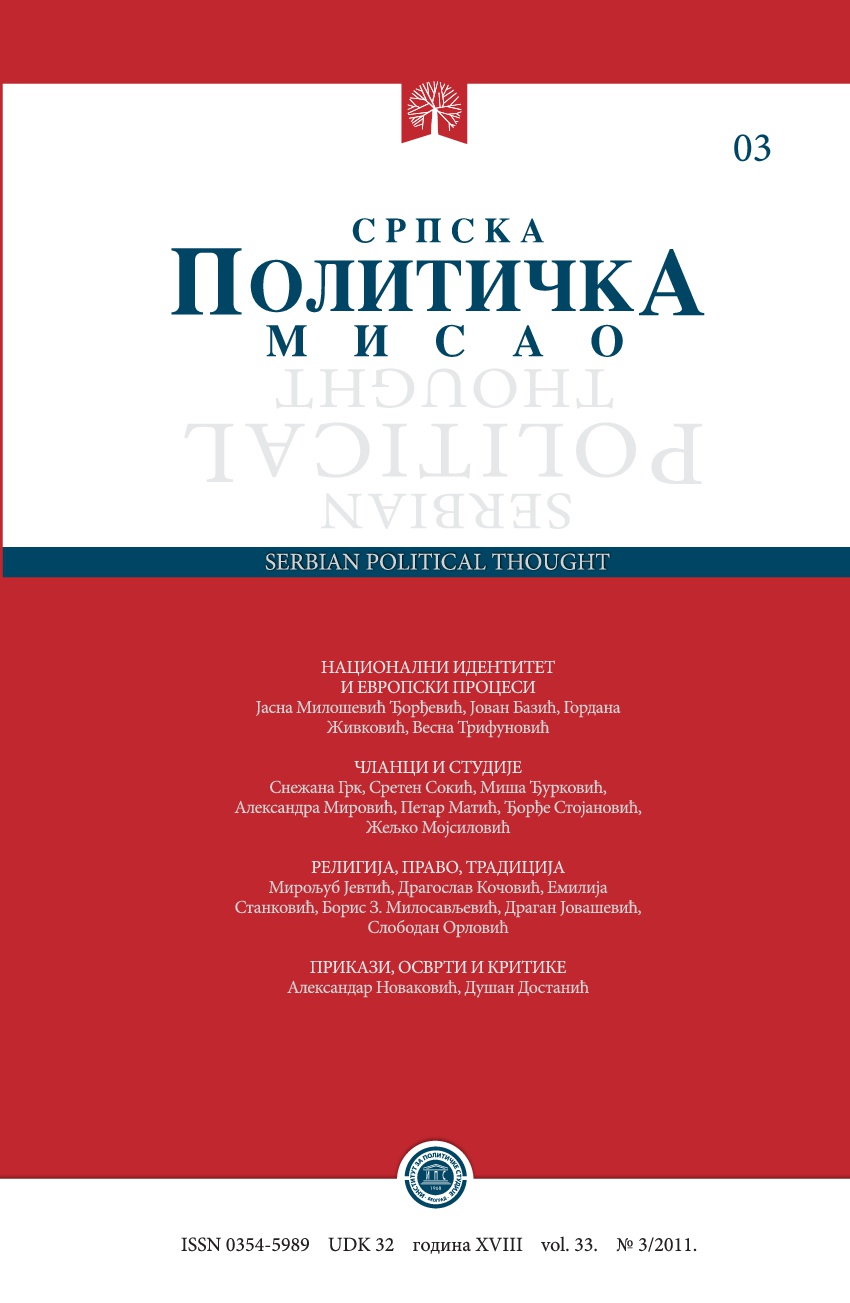Борба за нови српски идентитет
The Struggle for New Serbian Identity
Author(s): Gordana ŽivkovićSubject(s): Museology & Heritage Studies, Cultural Anthropology / Ethnology, Politics and Identity, Identity of Collectives
Published by: Институт за политичке студије
Keywords: transition; the Serbian national identity; church; tradition; modernization;
Summary/Abstract: This paper discusses the complex, sensitive and insufficiently investigated problem of the transition and the Serbian national identity, operationalized through the following questions: should our integration into the European cultural and spiritual space exclude our tradition, specific cultural patterns and the ruling religious principles? Or do we just need to bring them into the common European cultural and spiritual heritage that will continue to develop in a specific form? Are inherited customs, the nature of people and the way of making their evaluations in a position to threaten the changes aimed at making invalid everything that represent obstacle to the Europeanization of life? Or are the traditions quite capable to contribute it? Recalling the experience of developed Western countries shows that fundamental changes that they have been going through and it has not been any destruction of its own, but it was its modernization, the author maintains that tradition is not perceived as something given once and for all, but it has been establishing again and again by the efforts of new generations to preserve and strengthen its significance. Stressing that any transformation of the tradition as maintenance and reproduction of human identity into the ineffective past would led to tragic consequences in terms of human existence, the author warns that it overlooks that Europeanization would have no chance to determine not even this what is already won. Drawing attention to possible effects of such Europeanization in many ways resembled the well- known communist ideological interventions in these areas, the author dismisses as unjustified and harmful attitudes of the so- called alternative non- governmental organizations that the basic problems of our wanderings and hardships of transition reflected in Serbian nationalism are the church and tradition.
Journal: Српска политичка мисао
- Issue Year: 2011
- Issue No: 3
- Page Range: 47-60
- Page Count: 14
- Language: Serbian

